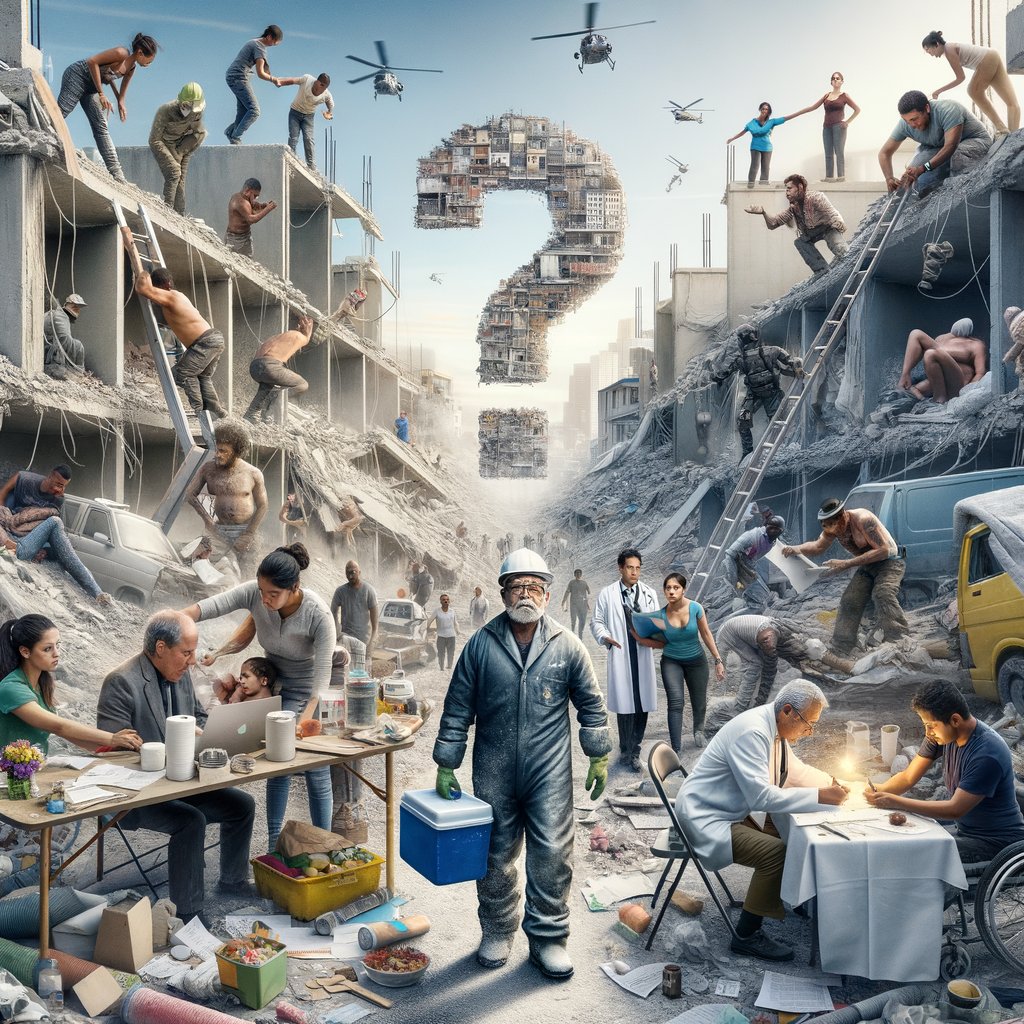Image created by AI
The Forgotten Survivors of George's Building Collapse: A Tale of Suffering and Neglect
Nine months after the devastating building collapse in George, which claimed the lives of 34 construction workers, the survivors are still battling with physical injuries, psychological traumas, and the frustration of an unresolved compensation process. The tragedy of 6 May not only left the nation in shock but also shed light on the long road to recovery that each survivor must face.
Ivaldo Macamo, whose life was irrevocably changed after losing his leg in the accident, is emblematic of the 28 survivors' plight. The Mozambican plasterer, with over ten years of experience, now faces the daily struggle of navigating life in an informal settlement with limited mobility. Virgilio Sitoe, another survivor and friend of Macamo, experiences excruciating pain with mere attempts to work, all due to the injuries sustained during the collapse.
The investigation into the cause of the catastrophe remains an ongoing effort by the South African Police Service, the Western Cape government, and the Department of Labour and Employment. However, no definitive cause has been established, leaving many survivors in limbo without clarity or resolution.
The survivors' pursuit of financial support from the Unemployment Insurance Fund and the Compensation Fund has been marred by bureaucratic obstacles. Many, like a Malawian survivor who was temporarily detained during a police station visit for document certification, face additional challenges due to their non-South African status.
Subcontractors responsible for employment of the workers, Bo Shova and Father and Sons, remain unresponsive, exacerbating the survivors’ difficulties as they attempt to navigate the complex compensation application process on their own.
The George Municipality has initiated some relief by establishing a R173,000 fund. Nevertheless, this amount is scant consolation when shared amongst the families and does not address the survivors' ongoing medical and psychological needs.
Ina Bezuidenhout, an advocate for occupational health and safety, highlights that the survivors are, in essence, fighting their battle largely alone. The usual reliance on employers to facilitate compensation claims is conspicuously absent in this case, leaving victims to incur costs simply to obtain or provide a litany of documentation.
Elelwani Mawela's heart-wrenching account of her experience and recovery, including extensive facial surgery, underlines the harrowing personal experiences behind the headlines. Confronting nightmares and requiring counselling, she, like many survivors, is left without support as she has moved away from the Western Cape.
The humanitarian response from local funeral parlour AVBOB and the Zimbabwean community in George illustrates a profound community spirit, but also a profound need: the need for answers. The dire financial state of the families of the deceased, many of whom were the sole breadwinners for their families abroad, remains a pressing concern.
As the inquiry into the collapse drags on and local organizations continue to provide food parcels, the question lingers: When will justice and proper compensation arrive for those who have suffered enough?










